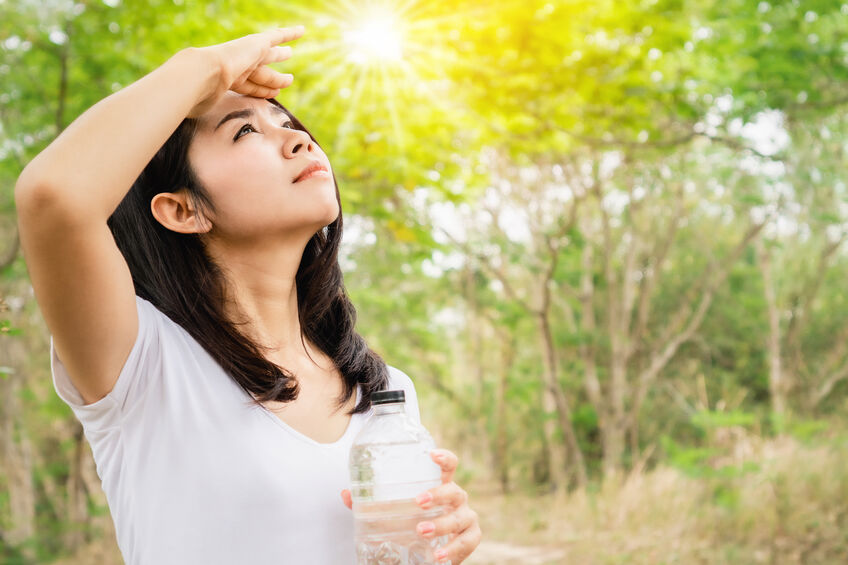
There are many summer health risks to watch out for this season. Heat illnesses can occur when the body cannot properly cool itself. While the body normally cools itself by sweating, this might not be enough to combat extreme heat! In some cases, your body’s temperature rises faster than it can cool itself down, which has the potential to cause damage to vital organs.
Types of Heat Illnesses
There are three main types of heat-related illnesses:
Heat Cramps: Heat cramps are the mildest form of heat illness and consist of painful muscle cramps and spasms that occur during or after intense exercise and sweating in high heat.
Heat Exhaustion: Heat exhaustion is more severe than heat cramps and results from a loss of water and salt in the body. It occurs in extreme heat and excessive sweating without adequate fluid and salt replacement. Heat exhaustion occurs when the body cannot cool itself properly and, if left untreated, can progress to heat stroke.
Heat Stroke: Heat stroke, the most severe form of heat illness, occurs when the body’s heat-regulating system is overwhelmed by excessive heat. It is a life-threatening emergency and requires immediate medical attention.
Symptoms of Heat Illnesses
Each type of heat illness has its own set of symptoms, but the general symptoms of any heat-related illness are:
- Heavy sweating
- Painful muscle cramps
- Extreme weakness and/or fatigue
- Nausea and/or vomiting
- Dizziness and/or headache
- High body temperature
- Fainting
- Pulse fast and weak
- Breathing fast and shallow
- Clammy, pale, cool, and/or moist skin
Tips for Preventing Heat Illnesses
Some health conditions can make it harder for the body to stay cool in hot weather. These include old age, obesity, fever, dehydration, heart disease, poor circulation, sunburn, and drug and alcohol use. To protect your health when temperatures are very high, be sure to:
Wear Light Clothing and Sunscreen
Choose lightweight, light-colored, and loose-fitted clothing. In the hot sun, a wide-brimmed hat will keep the head cool. If you will be in direct sun, use a sunscreen with a sun protection factor (SPF) of 15 or higher and follow package directions. Reapply every 2 hours while in the sun.
Drink Plenty of Water
Sweating removes needed salt and minerals from the body. When it is hot, drink more water, juice, and sports drinks. Avoid drinks with caffeine (tea, coffee, and cola) and alcohol. Be sure to eat regularly.
Stay Cool Indoors
The best way to beat the heat is to stay in an air-conditioned area. If you don’t have an air conditioner, go to a shopping center or public building for a few hours. A cool shower or bath is also a good way to cool off.
Plan Outdoor Activities
Try to be less active during the hottest part of the day, late afternoon. If you must be out in the heat, plan your activities so that you are outdoors before noon or in the evening. While outdoors, rest often in a shady area. Never leave kids or pets in a parked car.
Check on Your Loved Ones
During a heat wave, check on your friends and family and have someone do the same for you. If you know someone who is elderly or has a health condition, check on them twice a day during a heat wave. Watch for signs of heat exhaustion or heat stroke. High temperatures can cause serious health problems. Know the symptoms of heat-related illness and be ready to help!
As a Texas-based home medical equipment provider, we at BEK Medical understand the importance of heat safety, especially during the scorching summer season. We offer many amazing products to help people live in health and comfort all year round.
Browse our online shop or stop by in-store to discover the medical equipment you need to stay safe this summer!
